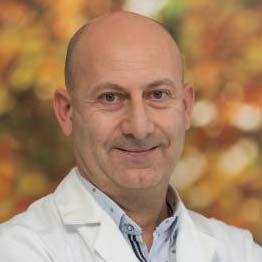29/05/2020
Published in
Diario de Navarra
Enrique Baquero Martin
Professor of Zoology and Ecology, University of Navarra, Spain
ecosystems are like a cuckoo clock, full of parts. But we'll save the comparison for last.
 May 22 is the International Day for Biological Diversity (Biological Diversity is the scientific term and Biodiversity is the one we use in the social-political context). Its slogan this year is "Our solutions are in nature"(Our solutions are in nature), making it clear that the current scenario needs solutions because we have many problems, but with a proactive language that looks to the future with hope. These problems -many times- come from the hand of technological progress, from the need for enormous amounts of energy and resources that impact the environment we share with many other species. In the slogan we can also appreciate the importance of working together, all regions, because our "system" no longer has borders.
May 22 is the International Day for Biological Diversity (Biological Diversity is the scientific term and Biodiversity is the one we use in the social-political context). Its slogan this year is "Our solutions are in nature"(Our solutions are in nature), making it clear that the current scenario needs solutions because we have many problems, but with a proactive language that looks to the future with hope. These problems -many times- come from the hand of technological progress, from the need for enormous amounts of energy and resources that impact the environment we share with many other species. In the slogan we can also appreciate the importance of working together, all regions, because our "system" no longer has borders.
It is increasingly common to find the term Biodiversity in the press, in the media and even in the conversations of citizens. It would be desirable for it to be more present in the curricula of schools and institutes, constituting an essential part of the objectives of the Environmental Education , context core topic for the desired sustainable growth. Scientists need to transmit to citizens some concepts core topic and to achieve this we need better communication. It is imperative that human beings are aware that human activity is accelerating the disappearance of species, right now at a rate 1000 times greater than at any other time in recorded human history; that of the eight million species on the planet, one million are endangered, in the oceans and on land, in forests, mountains and grasslands. It is important for people to know the meaning of the term Ecosystem ("biological system constituted by a community of living beings and the natural environment in which they live") because it allows us to understand that human beings are part of nature.
Our challenge is to know in order to protect, and to behave like the rest of its components for the maintenance of the environment. To become part of that nature again, to use the technological -and social- advances to contribute to the maintenance of the Ecosystems, not only to deplete them in search of water, food, medicines, shelter, fuel and energy, or minerals to build wonderful "little machines". It is important that each of the inhabitants of the planet knows the importance of soil, which is not only that which we step on with our shoes (the one who has them), but represents the basis of life in natural ecosystems and also in the artificial ones we build to produce food; it stores water and CO2, and nutrients as part of an essential cycle for life. If we do not know it, and we do not give it the importance it has, we lose it by developing industrial agriculture that turns it into lifeless dust, we let it erode when we remove its natural tropical forest cover, or we simply bury it under tons of asphalt and cement.
The word Ecology ("part of Biology that studies the relationships of living beings among themselves and with the environment in which they live") begins in the same way as Economics ("science that studies resources, wealth; production, distribution and consumption of goods and services, to satisfy human needs"). It is not a coincidence, both consider a system, and are based on the concept of "value". Economic prosperity is supported by Biodiversity, and can be demonstrated with numbers. The main economic sectors depend on nature: construction, agriculture and food. On the other hand, 70% of the population with few resources depends on nature to subsist through agriculture, forestry or fishing.
In the current context, any text includes SARS-CoV-2 (Covid-19). The status that we are living at a global level also has to do with Biodiversity, since Zoonoses ("infectious disease that is naturally transmitted from animals -mostly vertebrates- to humans, and vice versa") are much less frequent in healthy ecosystems, in balance, with all their parts.
Cuckoo clocks work only if no part is missing: the dozens of cogwheels that exchange energy, the weight and its chain that use gravity to give life to the whole, the hands that inform, the "cuckoo" that brings its color and sound every hour, even with the person in front of it, receiving the information about the passing of time. Well, an ecosystem, with its biodiverse parts, is like that clock. If one piece is missing, the whole system suffers and stops. Let's keep the clock running.
